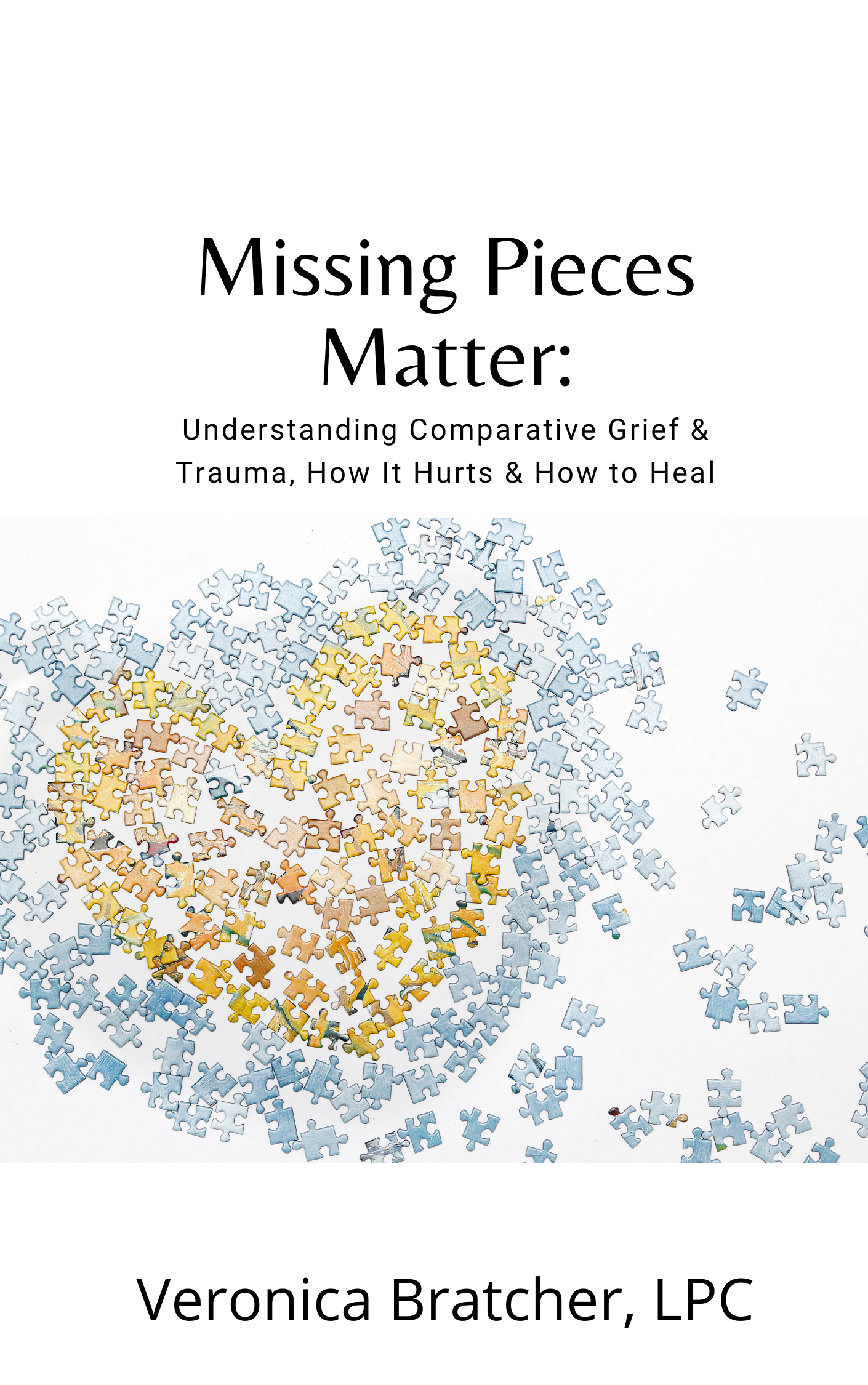Missing Pieces Matter: Prologue
This is an excerpt from Missing Pieces Matter, written by Veronica Bratcher and set to be released in May 2022.
There’s a body in the river.
No one had to tell me it was her. I just knew. After we called the police dispatch to ask and remind them of our missing daughter, my body had a visceral reaction like a sucker punch to the gut.
My 15-year-old daughter had left the house the night before and neither us nor the police could find her. I hardly slept and couldn’t eat. All of a parent’s “what if” fears played in the few moments where my eyes drifted off to sleep and hadn’t stopped in my waking moments either.
Loss starts as a feeling with no words coming out—no words in my head and a feeling of something stuck in my throat. This pit of grief seemed primal and there was no rationalizing it. It was hard to breathe, impossible to eat, and so deeply painful, as if there was nothing else left to feel.
As time passed with all the events surrounding her death, it seemed as if there was a deeper and deeper distance forming between me and those around me. No one knew what to say and I couldn’t help them. Grief is the ultimate rabbit hole where you have no idea how far or how fast you are falling, feeling like sometimes you may never get out. While I didn’t know it at the time, as hard as it was for me, it was also uncomfortable for the people around me. Many just didn’t know what to do with me, what to say, or even how to interact. My grief made them uncomfortable.
Simple questions used in small talk became grenades. The friendly hair stylist asked “How many children do you have?” and mental minecraft began.
Do I give a total number and say nothing else, then the lighter fluid follow-up of how old they are or what grade they are in?
That goes something like “Well, a kindergartner, a 2nd grader, and a 9th grader whose ashes I will be picking up later today”. That usually results in the deer in the headlights response, followed by the silence of crickets. Honesty has very little space for grief in small talk
Perhaps I should go with something more socially edited and only list my living children, as if my loss could be wiped away with a magic eraser. The person could go right along chatting while a hole burned in my soul that I just pretended my child never existed, followed by a heaping side of guilt.
My story is not unique. A person who just lost their spouse or ended a relationship can be seen visually cringing when asked how their relationship is going. As we will explore further, there are an infinite amount of situations that can result in grief, affecting every single person often multiple times throughout their life regardless of race, income, or even geographic location. This is a part of the human experience. Yet the universal nature of this event has not resulted in adequate understanding or response to a challenge we will all face.
When people are uncomfortable in general, our first impulse is often to try to do something that will change the situation, to change this feeling as if we are trying to get a pesky rock out of our shoe. Some people were speechless, some would even begin to avoid me to avoid this feeling of being helpless to change my grief. Many others would shift to telling me about their loss. Close friends and strangers would start to tell me how their friend, family member, or even pet had died adding the traditional “I’m sorry for your loss.”
I also found that the more I heard this, the less it made me feel better. These were some of the strongest experiences I would come to have with what I later learned is called Comparative Grief. Comparative Grief is where two or more individuals begin to share about losses and both consciously and unconsciously compare the events and effects of grief in an attempt to connect and feel understood. Instead it often results in feeling like no one is listening or that there is an unspoken competition about who’s loss is bigger. It is like a fisherman telling a story of how he caught a fish “this big” only to be outdone by a buddy telling the tale of how he caught an even bigger fish.
As a licensed mental health therapist, I have been given a unique viewpoint of not only my own grief but a front row seat to the grief and trauma of thousands of others. I have read more books that I can keep track of and learned various theories and methods for treatment. I have also engaged in therapy myself as a client with other therapists. A few would provide a sense of trust and connection while others fell flat, leaving me feeling alone and as if my grief was a personal failing because I just wasn’t focusing on the right things or working hard enough to fix it.
Since that day, it has been almost a decade of noticing and processing a mountain of grief while also living in a world that struggles to understand it. The legal process is not equipped to understand grief. The medical process struggles to accept the variation that is shown from person to person and loss to loss. Employers struggle with the impact on attendance and work flow as the typical three days of leave don’t match with the experience of grief.
This book is a journey about grief and love. It may be your own or help you allow space for the grief of someone you care about. All loss matters and we don’t have to do this alone.

